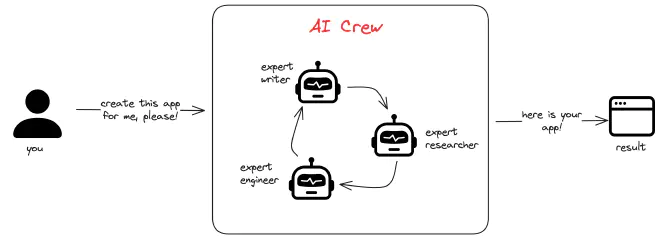Tesla has announced a recall affecting 7,301 Model Y SUVs produced in 2025 after identifying a software defect in the driver’s side window automatic protection system. This issue could cause the window to close with excessive force if it fails to detect obstructions, creating a potential risk of injury to drivers and passengers.
The recall, issued by Australia’s Department of Infrastructure, Transport, Regional Development, Communications, Sport and the Arts, highlights both the promise and challenges of the digitization of modern vehicles. While software updates allow Tesla to quickly address issues remotely, they also introduce new vulnerabilities that can compromise safety if not carefully managed.
Read More: Consumers Continue Investing in Technology Despite July Report Warnings
Details of the Recall
The recall specifically targets Model Y vehicles manufactured in 2025. Owners of affected vehicles will receive direct notifications from Tesla and can expect an over-the-air (OTA) software update, which eliminates the need for a dealership visit. Cars that are already running software version 2025.26.6 or newer are not impacted.
This recall is not Tesla’s first software-related issue in Australia. In March 2025, the company recalled nearly 300 Model Y and Model 3 vehicles due to a potential loss of power steering. Combined with the current action, this marks Tesla’s second significant recall of the year, drawing attention to the frequency of software-driven recalls in the region.
What Tesla Owners Should Do
If your vehicle is affected, Tesla recommends following the instructions in the notification and ensuring your car is updated with the latest OTA software version. Owners should avoid using the driver’s side window until the update is applied to prevent potential injury. Unlike traditional recalls, Tesla’s OTA updates mean drivers do not need to visit a service center, which simplifies the process and reduces inconvenience.
For vehicles already running the latest software version, no action is necessary. Tesla’s proactive notification system ensures owners are aware of any safety risks as soon as they are detected.
Global Context: Tesla Recalls
This recall mirrors a similar issue in the United States in 2022, where over 1.1 million Tesla vehicles—including Model 3 and Model S units—were recalled due to automatic window safety concerns. These global incidents illustrate that software issues in Tesla vehicles are not isolated to one region but represent a wider challenge in managing digital systems in modern automobiles.
Since 2021, Tesla has issued 17 recalls in Australia alone, with the majority stemming from software glitches rather than hardware defects. While software-based recalls can be resolved more efficiently via OTA updates, the frequency raises questions about quality assurance processes and the robustness of Tesla’s digital systems.
Software vs. Hardware Issues in Electric Vehicles
Modern electric vehicles rely heavily on software for essential functions, from battery management to driver assistance and safety systems. Unlike traditional vehicles, where recalls typically involve hardware defects, Tesla’s recalls increasingly involve digital systems. While this allows for rapid updates and improvements, it also introduces complexity. Even minor software glitches can affect safety-critical systems, requiring prompt detection and resolution.
Tesla’s reliance on software highlights a broader trend in the automotive industry, where digital systems are becoming integral to vehicle operation. While these innovations offer convenience and efficiency, they also necessitate rigorous testing, continuous monitoring, and swift response mechanisms to prevent accidents and maintain customer trust.
Safety Considerations
The driver’s side window defect may seem minor, but it carries significant safety implications. Automatic window systems are designed to detect obstructions and prevent injury. When this fails, the window could exert excessive force, posing a danger to occupants, particularly children or individuals with limited mobility.
Tesla’s proactive approach—issuing notifications and applying OTA updates—demonstrates a commitment to safety, but the recurrence of such recalls emphasizes the importance of vigilance. Owners should regularly check for software updates and ensure their vehicles are running the latest versions to minimize risks.
Implications of Frequent Software Recalls
Frequent software recalls can have multiple implications:
- Consumer Trust: Repeated recalls may affect customer confidence in the reliability of Tesla vehicles, particularly in markets like Australia, where several high-profile recalls have occurred within a short timeframe.
- Regulatory Scrutiny: Government agencies may increase oversight of EV software systems, requiring stricter testing and reporting standards.
- Automotive Innovation Challenges: As cars become more software-driven, manufacturers must balance rapid technological innovation with stringent safety and quality controls.
Despite these challenges, Tesla’s ability to deliver OTA updates offers a competitive advantage, allowing fixes to be deployed quickly without inconveniencing customers.
Frequently Asked Quesions
How will I know if my Tesla is affected by a recall?
Tesla owners of affected vehicles will receive direct notifications from the company. You can also check your vehicle’s software version or visit Tesla’s official recall page.
Do I need to visit a dealership for the recall?
No. Most recalls, including this one, are resolved via over-the-air (OTA) software updates, so a dealership visit is usually not necessary.
Which vehicles are impacted by this recall?
This recall affects 7,301 Tesla Model Y SUVs produced in 2025. Vehicles running software version 2025.26.6 or newer are not impacted.
Has Tesla had similar recalls before?
Yes. Tesla issued a U.S. recall in 2022 affecting over 1.1 million vehicles for a similar window safety issue, and in March 2025, nearly 300 Model Y and Model 3 vehicles were recalled in Australia due to potential power steering loss.
Are Tesla recalls usually software-related or hardware-related?
Most recent Tesla recalls, especially in Australia, have been caused by software glitches rather than hardware defects, highlighting the complexity of digital systems in modern vehicles.
Conclusion
Tesla’s latest recall underscores both the benefits and challenges of modern vehicle digitization. While over-the-air software updates allow for quick, convenient fixes, frequent recalls highlight the growing complexity and potential vulnerabilities in electric vehicle systems. Owners are encouraged to stay informed about their vehicle’s software version and follow Tesla’s instructions promptly to ensure safety. As Tesla continues to expand its presence in Australia and globally, maintaining robust quality assurance and addressing software issues proactively will be critical to sustaining consumer trust and safety in the evolving EV market.







